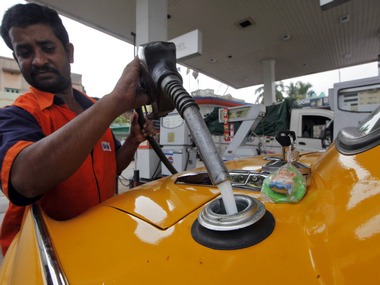If you are planning to buy a car, you better be quick about it as diesel cars could get a tad bit more costlier if the government has its way. An ever-increasing subsidy for oil companies has made the government put on its thinking cap as they are pondering over the decision to hike duties on diesel cars to compensate oil companies in the upcoming Union Budget 2012.
This is why diesel cars are expected to be the next big thing. Crisil expects the proportion of diesel cars to increase to 45 percent in 2015-16 from the current 36 percent, reported the Economic Times. In fact in 2012 so far, diesel cars have seen a growth of 7.4 percent as against a 4.3 percent growth in petrol cars due to the significant price differential in fuel prices.
[caption id=“attachment_224263” align=“alignleft” width=“380” caption=“Diesel cars have seen a growth of 7.4 percent as against a 4.3 percent growth in petrol cars due to the significant price differential in fuel prices.Reuters”]  [/caption]
Quite obvious such a huge number has got the money-starved government’s mouth watering as such an increase could help them make up for the revenue losses they have incurred because of a cap on diesel prices.
However, this decision did not go too well with auto-makers who would prefer a marginal hike in diesel price in stead of a hike in taxes. Even the Heavy Industries ministry along with the Planning Commission has suggested an increase in diesel prices by Rs 0.75 as an alternative, _Firstpost_ reported earlier.
So if you are planning to buy your dream diesel car, here are some points to ponder over
•Diesel cars could become costlier post the budget if the government decides to hike the duties on the cars.
Impact Shorts
More Shorts•Cost of maintenance could increase if the government decides to increase the hike of diesel prices.
•Gap between the cost of petrol and the price of diesel is narrowing.
•According to a SIAM presentation, Diesel cars are more fuel efficient and emit less carbon dioxide than petrol vehicles. The diesel engines also use up to 30 percent less fuel than their petrol engine counterparts.
•Diesel engines have better low-end torque and therefore better drive ability.
•Diesel engine is inherently more reliable and requires less maintenance than a comparative petrol engine, therefore less maintenance cost for the owner of the car.
•Diesel engines have improved emission control in cold engine conditions and also in low ambient temperatures.


)

)
)
)
)
)
)
)
)



